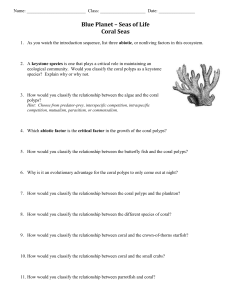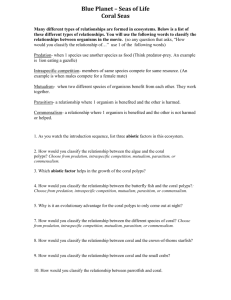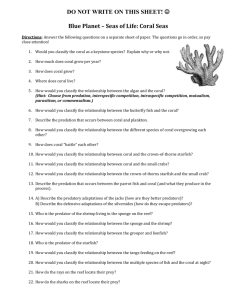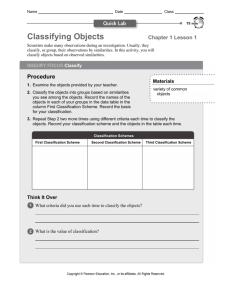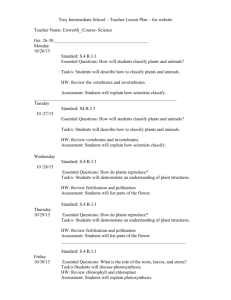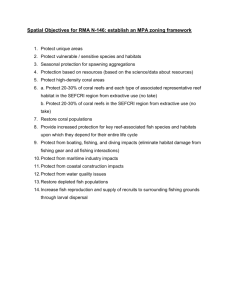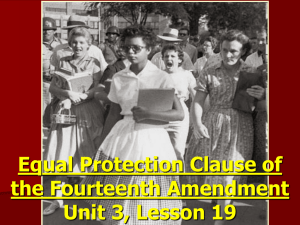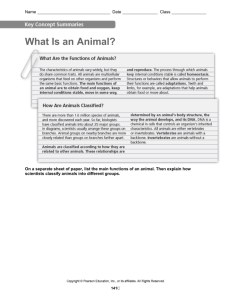traits coral
advertisement
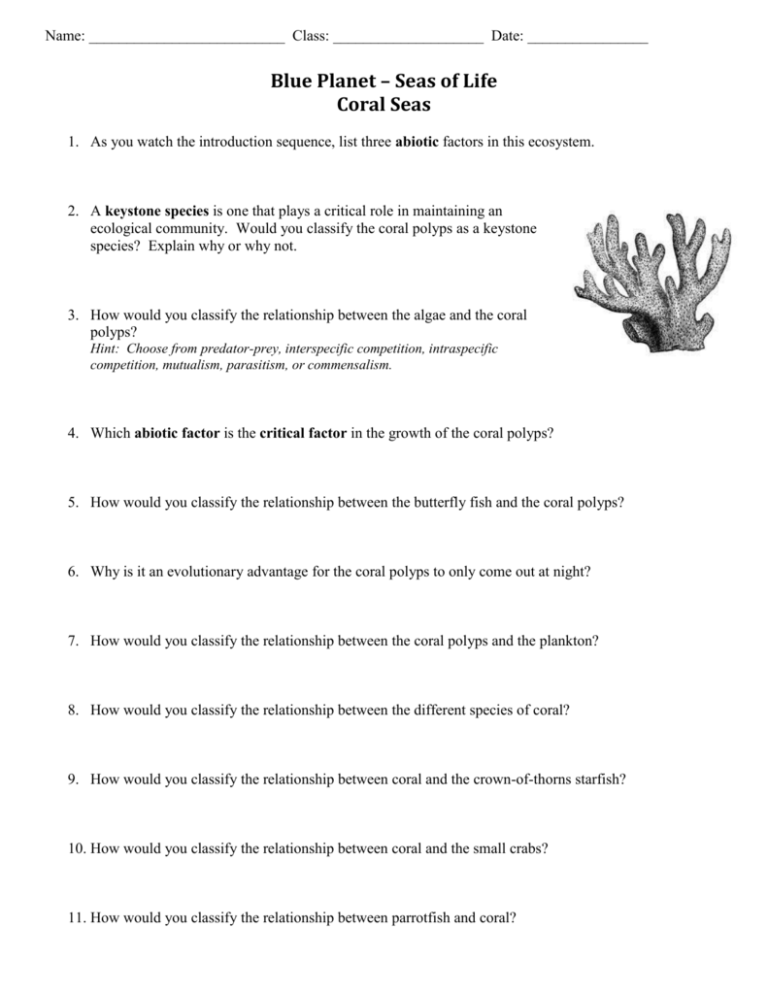
Name: __________________________ Class: ____________________ Date: ________________ Blue Planet – Seas of Life Coral Seas 1. As you watch the introduction sequence, list three abiotic factors in this ecosystem. 2. A keystone species is one that plays a critical role in maintaining an ecological community. Would you classify the coral polyps as a keystone species? Explain why or why not. 3. How would you classify the relationship between the algae and the coral polyps? Hint: Choose from predator-prey, interspecific competition, intraspecific competition, mutualism, parasitism, or commensalism. 4. Which abiotic factor is the critical factor in the growth of the coral polyps? 5. How would you classify the relationship between the butterfly fish and the coral polyps? 6. Why is it an evolutionary advantage for the coral polyps to only come out at night? 7. How would you classify the relationship between the coral polyps and the plankton? 8. How would you classify the relationship between the different species of coral? 9. How would you classify the relationship between coral and the crown-of-thorns starfish? 10. How would you classify the relationship between coral and the small crabs? 11. How would you classify the relationship between parrotfish and coral? Name: __________________________ Class: ____________________ Date: ________________ 12. Jacks and silversides are a good example of an evolutionary arms race between predators and prey. Describe the predatory adaptations of the jacks, and the defensive adaptations of the silversides. a. Jacks – b. Silversides – 13. How would you classify the relationship between the sponge and the shrimp? Hint: The shrimp consume and live off the sponge. 14. How would you classify the relationship between the polychaete worm and the shrimp? 15. How would you classify the relationship between the redmouth grouper and lionfish? 16. How would you classify the relationship between the powder blue tangs and the convict tangs? 17. How would you classify the relationship amongst the white-tip shark individuals? 18. The entire group of white-tip sharks engaging in a feeding frenzy would be a _________. a. Organism c. Community b. Population d. Ecosystem 19. The white-tip sharks, marbled rays, octopus, lobster, eel, basket star, and all the other fish present in the coral reef during the night would be considered a… a. Organism c. Community b. Population d. Ecosystem 20. Watch the brown sturgeonfish mating ritual. Which males are most likely to pass their traits on to the next generation? How will this affect future populations? 21. The banded pipefish shown practice monogamy. How does their sexual behavior provide them an advantage? 22. Compare the appearance of the male and female cuttlefish. Why do the male and females look so different, even though they are the same species?
